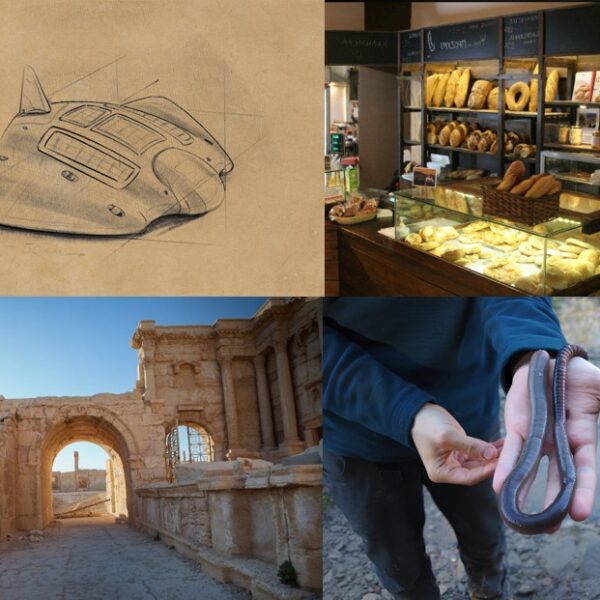From Greece to Syria, the Mediterranean relies on culture, science, and innovation to face its challenges. In Epirus, a village bakery becomes a driver of local revitalization. In Syria, the restoration of heritage supports economic recovery. In Montpellier, research highlights the ecological role of earthworms. And in Marseille, drone technology paves the way for the decontamination of the sea.
Summary of articles published this week in 22-med, available in the 11 languages used on the site. To read them in full: subscribe and support an independent media.
A village bakery attracts tourists from around the world
In the village of Zitsa, in Epirus, a couple has transformed a bakery into a cultural sharing space. Kostas Karamikos and Anna Ellis welcome visitors from around the world to learn how to shape traditional regional bread and pies. This unique project, born from a chance encounter during travel, is today contributing to the revival of a Greek village.
Repairing Syrian heritage to revive the tourism economy
Devastated by war, Syria is now trying to rebuild its future through the restoration of its heritage. Between ancient ruins and collective hope, the country is betting on culture to revive sustainable tourism and breathe life back into its economy. Supported by UNESCO and several NGOs, training, digitization, and conservation programs are thus empowering Syrians to protect their memory.
The earthworm, a precious ally of nature
Invisible yet vital, the earthworm is at the heart of the stability of our ecosystems. It aerates, fertilizes, nourishes, and regulates life. And thus ensures soil health and agricultural resilience. However, intensive practices and pesticides jeopardize this delicate balance. In Montpellier, Mickaël Hedde, research director at INRAE, advocates for scientific and political recognition of this underground worker without which, he says, "there is no humanity." precious of nature
Drones to clean the Mediterranean of its microplastics
A fleet of autonomous drones, capable of detecting, sucking up, and mapping microplastics in the sea: this is the crazy bet of a self-taught inventor from Marseille supported by a digital entrepreneur. After three years of research, their project is entering the deployment phase, with the first fifty prototypes set to be launched off the coast of Marseille by the end of the year. Equipped with sensors, these miniature and eco-friendly drones filter the water day and night, without interruption. They store the particles and simultaneously generate a precise map of marine pollution. The goal: to prove that continuous action can ultimately decontaminate the Mediterranean.
